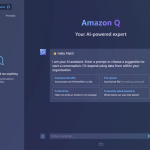E-learning is a form of education that uses electronic media and technology to deliver learning materials and activities to learners. E-learning can offer many benefits, such as flexibility, accessibility, personalization, and cost-effectiveness. However, e-learning also faces some challenges, such as content quality, engagement, feedback, and assessment. To overcome these challenges, e-learning providers and educators are looking for innovative ways to create and deliver content that can meet the diverse needs and preferences of learners.
What is AI-Generated Content and How Does It Work?
One of the emerging trends in e-learning is the use of artificial intelligence (AI) to generate content. AI is a branch of computer science that aims to create machines or systems that can perform tasks that normally require human intelligence, such as reasoning, learning, and creativity. AI can be applied to various aspects of e-learning, such as content creation, content delivery, content analysis, and content evaluation.
AI-generated content is content that is created by using AI algorithms and models, such as natural language processing (NLP), computer vision, and deep learning. AI-generated content can be text, audio, video, or image-based. AI-generated content can have various purposes and formats, such as educational articles, podcasts, videos, quizzes, games, simulations, or scenarios.
How Can AI-Generated Content Enhance the Quality and Quantity of E-Learning Content?
AI-generated content can enhance the quality and quantity of e-learning content. AI can help create content that is accurate, relevant, up-to-date, and tailored to the learners’ needs and goals. AI can also help produce content that is diverse, engaging, and interactive. AI can generate content faster and cheaper than human authors or instructors.
For example, AI can use NLP to generate text-based content from various sources, such as books, articles, websites, or databases. AI can also use computer vision to generate image-based content from photos or videos. AI can use deep learning to generate audio or video-based content from speech or music. AI can also use NLP to generate questions or answers from text-based content.
How Can AI-Generated Content Improve the Learning Outcomes and Experiences of Learners?
AI-generated content can improve the learning outcomes and experiences of learners. AI can help deliver content that is adaptive, personalized, and responsive to the learners’ progress and feedback. AI can also help provide content that is immersive, realistic, and contextualized to the learners’ environment and situation. AI can facilitate learning by doing, learning by playing, and learning by exploring.
For example, AI can use NLP to analyze the learners’ responses and provide feedback or suggestions. AI can also use computer vision to recognize the learners’ facial expressions or gestures and adjust the content accordingly. AI can use deep learning to create realistic simulations or scenarios that mimic real-world situations or problems. AI can also use NLP to create interactive games or stories that involve the learners in the learning process.
How Can AI-Generated Content Support the Assessment and Evaluation of E-Learning?
AI-generated content can support the assessment and evaluation of e-learning. AI can help create content that is aligned with the learning objectives and standards. AI can also help generate content that is valid, reliable, and fair for measuring the learners’ knowledge and skills. AI can provide instant and constructive feedback to the learners and the instructors.
For example, AI can use NLP to generate quizzes or tests from text-based content. AI can also use computer vision to generate puzzles or tasks from image-based content. AI can use deep learning to generate oral or written exams from audio or video-based content. AI can also use NLP to provide scoring or grading for the learners’ responses.
AI-Generated Content Offers New Possibilities and Challenges for E-Learning
AI-generated content is set to revolutionise the e-learning industry by offering new possibilities and opportunities for creating and delivering high-quality and engaging e-learning content. However, AI-generated content also poses some challenges and limitations, such as ethical, legal, social, and technical issues. Therefore, e-learning providers and educators need to be aware of the advantages and disadvantages of using AI-generated content for e-learning purposes.



